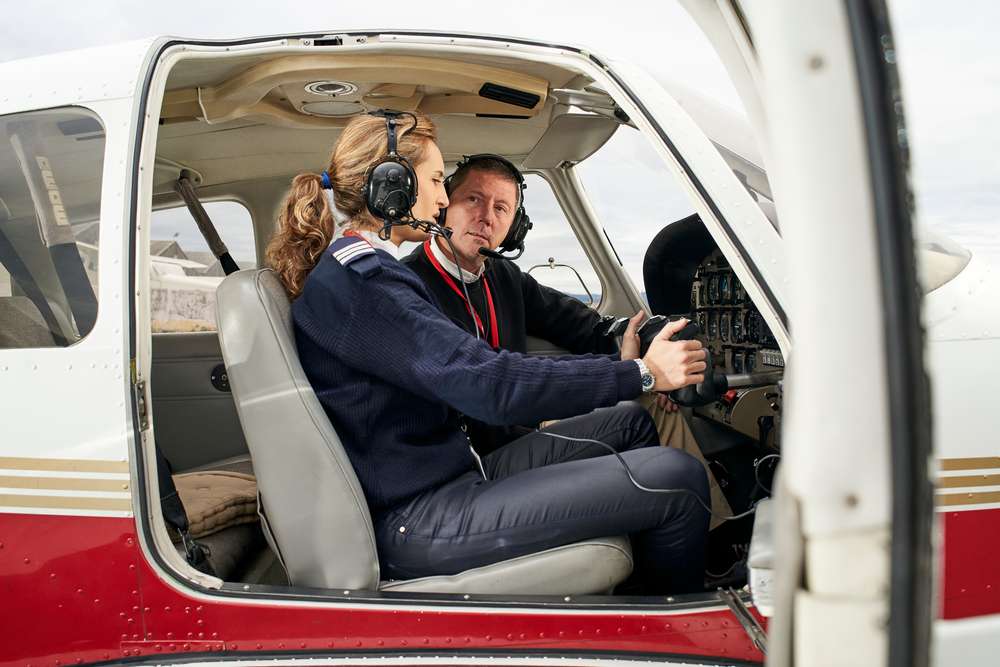Soaring to New Heights: Aviation Training in Saudi Arabia
The aviation industry in Saudi Arabia is experiencing rapid growth, creating exciting opportunities for those interested in pursuing a career in this dynamic field. With the country's ambitious Vision 2030 plan aiming to diversify the economy and reduce dependence on oil, the aviation sector has become a key focus for development. This article explores the landscape of aviation training in Saudi Arabia, highlighting the educational pathways, career prospects, and the country's commitment to becoming a regional hub for aviation excellence.

-
Commercial Pilot Training: Aspiring pilots can enroll in flight schools that offer comprehensive training programs leading to a Commercial Pilot License (CPL).
-
Aircraft Maintenance Engineering: Technical schools and institutes provide courses in aircraft maintenance, avionics, and aerospace engineering.
-
Air Traffic Control: Specialized programs train students to become air traffic controllers, an essential role in ensuring safe and efficient air operations.
-
Aviation Management: Universities and colleges offer degree programs in aviation management, preparing students for leadership roles in the industry.
-
Cabin Crew Training: Airlines and dedicated training centers offer courses for those interested in pursuing a career as flight attendants.
These programs combine theoretical knowledge with practical skills, ensuring that graduates are well-prepared for the demands of the aviation industry.
How does aviation education in Saudi Arabia align with international standards?
Saudi Arabia has made significant efforts to align its aviation education with international standards, ensuring that graduates are competent and globally recognized. The country’s aviation training institutions work closely with regulatory bodies such as the General Authority of Civil Aviation (GACA) and international organizations like the International Civil Aviation Organization (ICAO) to maintain high-quality standards.
Key aspects of this alignment include:
-
Curriculum Development: Training programs are designed to meet or exceed international requirements, incorporating the latest industry trends and technologies.
-
Instructor Qualifications: Aviation trainers in Saudi Arabia are required to have extensive industry experience and appropriate certifications.
-
Facility and Equipment Standards: Training centers are equipped with state-of-the-art simulators, laboratories, and aircraft to provide hands-on experience.
-
Regular Audits and Accreditations: Aviation schools undergo periodic assessments to ensure compliance with international standards and maintain their accreditations.
By adhering to these global benchmarks, Saudi Arabia ensures that its aviation graduates are well-prepared for careers both within the country and internationally.
What career opportunities are available in Saudi Arabia’s aviation sector?
The aviation industry in Saudi Arabia offers a diverse range of career opportunities for those with the right training and qualifications. As the country continues to invest in its aviation infrastructure and expand its air travel capabilities, the demand for skilled professionals is expected to grow. Some of the key career paths include:
-
Pilots: Commercial airlines, private jet operators, and government agencies all require qualified pilots.
-
Aircraft Maintenance Technicians: With a growing fleet of aircraft, there is a constant need for skilled maintenance personnel.
-
Air Traffic Controllers: As air traffic increases, so does the demand for controllers to manage the complex airspace.
-
Aviation Managers: Airports, airlines, and aviation-related businesses require professionals with expertise in aviation management.
-
Cabin Crew: The expansion of airlines and increase in passenger numbers create opportunities for flight attendants.
-
Aerospace Engineers: Research and development in the aviation sector offer exciting prospects for engineers.
These career paths offer competitive salaries, opportunities for advancement, and the chance to be part of a rapidly growing industry in Saudi Arabia.
How is Saudi Arabia positioning itself as a regional aviation training hub?
Saudi Arabia is actively working to establish itself as a leading aviation training hub in the Middle East. This strategic initiative is part of the country’s broader vision to diversify its economy and create new employment opportunities. Key efforts in this direction include:
-
Investments in Infrastructure: The government is funding the development of modern training facilities and aviation academies across the country.
-
Partnerships with International Institutions: Collaborations with renowned global aviation schools and organizations are helping to bring world-class training programs to Saudi Arabia.
-
Scholarships and Incentives: The government offers scholarships and financial support to encourage more Saudi nationals to pursue careers in aviation.
-
Research and Innovation: Investments in aviation-related research and development are fostering innovation and attracting talent to the sector.
-
Regulatory Framework: The country is continuously updating its aviation regulations to align with international best practices and facilitate growth in the training sector.
By focusing on these areas, Saudi Arabia aims to not only meet its own aviation workforce needs but also attract students from neighboring countries, positioning itself as a regional center of excellence in aviation training.
What are the challenges and future prospects for aviation training in Saudi Arabia?
While the aviation training sector in Saudi Arabia is experiencing significant growth, it also faces certain challenges. These include:
-
Rapid Technological Advancements: Keeping pace with the fast-evolving technology in aviation requires constant updates to training programs and equipment.
-
Cultural Considerations: Encouraging more women to enter the aviation field and addressing cultural perceptions about certain aviation roles.
-
Competition from Established Global Training Centers: Competing with well-established aviation training hubs in other countries to attract international students.
-
Balancing Supply and Demand: Ensuring that the number of trained professionals aligns with the industry’s needs to prevent oversupply or shortages.
Despite these challenges, the future prospects for aviation training in Saudi Arabia remain bright. The country’s strategic location, substantial investments in the sector, and commitment to diversifying its economy all contribute to a positive outlook. As the aviation industry continues to grow globally, Saudi Arabia is well-positioned to become a key player in training the next generation of aviation professionals.
In conclusion, aviation training in Saudi Arabia offers exciting opportunities for those looking to enter this dynamic field. With its focus on international standards, diverse career paths, and ambition to become a regional training hub, Saudi Arabia is creating a robust ecosystem for aviation education and career development. As the country continues to invest in this sector, it is likely to play an increasingly important role in shaping the future of aviation in the Middle East and beyond.






